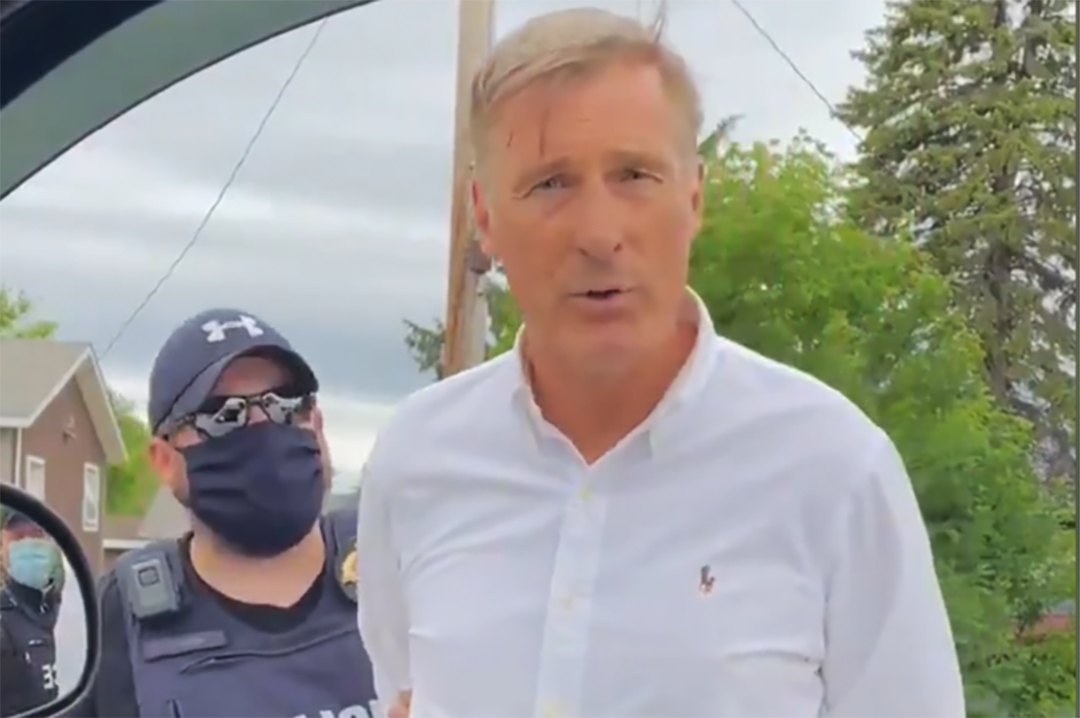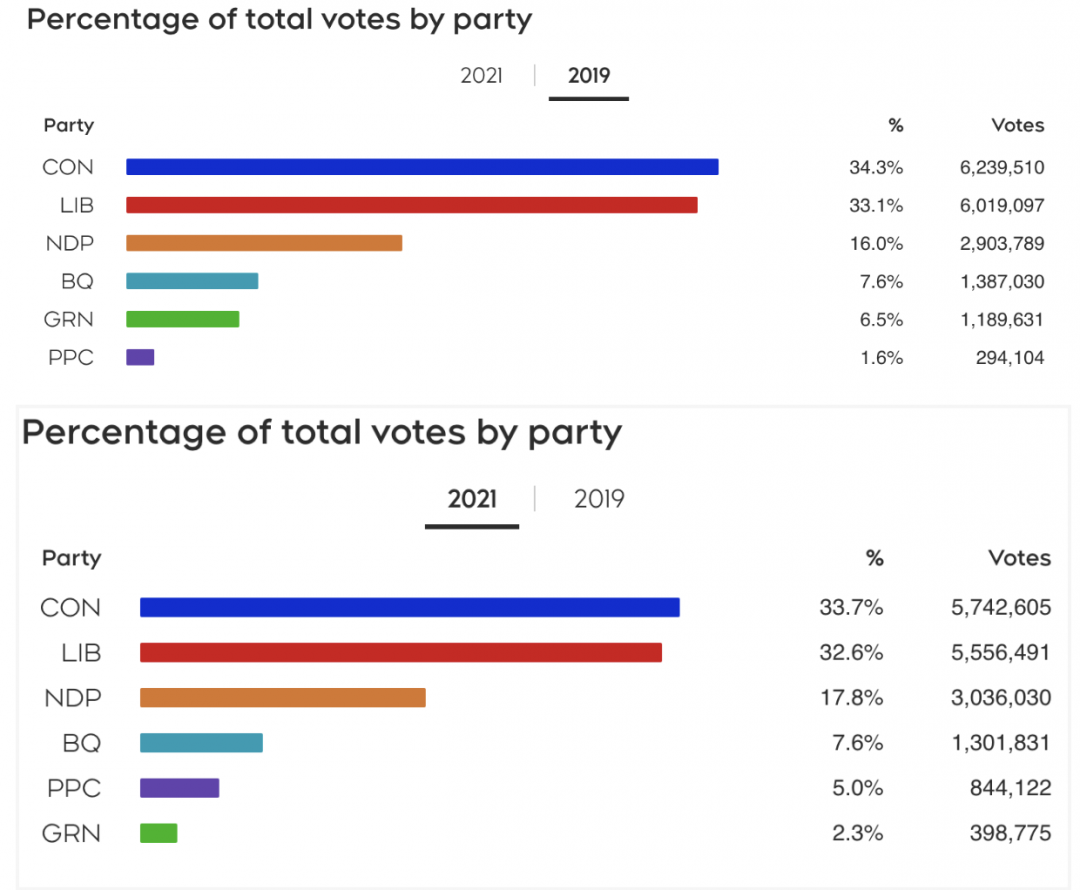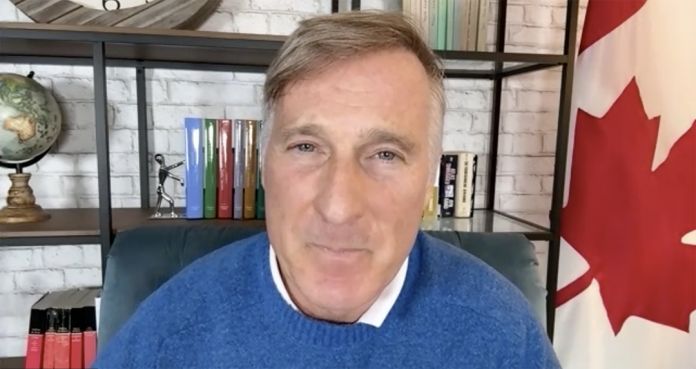Maxime Bernier, leader of the People’s Party of Canada (PPC), isn’t afraid to do things differently.
Unlike most political parties, the PPC doesn’t poll and survey constituents to determine what issues are winning points for their campaigns. Bernier said his party is doing politics based on ideas and conviction rather than what is popular.
During his federal campaign in 2021, he was the only national party leader to oppose COVID-19 lockdowns and mandates. He took the Canadian government to court over travel restrictions. The RCMP arrested him in Manitoba for attending a rally against COVID-19 restrictions in 2021.
Bernier believes that “the government is not the solution. The solution is more freedom and less government.”

During the height of the lockdowns, Bernier became a voice for many who rejected the public health mandates.
How did a private-sector Quebecer holding senior positions in the banking and insurance industry become the leader of a new political party in Canada?
Bernier was born and raised with a brother and two sisters in Saint George, Quebec.
He said the principles instilled in him at a young age shaped his political beliefs.
“For us working hard and working for first ourselves, and also for our family and community, that was part of our values,” Bernier said.
Bernier also found inspiration in books. Before entering politics, Bernier read a lot of authors who advocated for limited government and free markets.
He said he liked “Atlas Shrugged” by Ayn Rand so much that he read the 1,192 page novel twice. He also read economists in the Austrian School of Economics like Friedrich Hayek, Murray Rothbard and Ludwig Von Mises.
These authors were foundational to Bernier’s political philosophy. “That’s why I strongly believe in free markets and individual freedom,” he said.
Bernier’s journey through his political career began after 19 years of working in the private sector when he met with then-Conservative Party of Canada (CPC) Leader Stephen Harper in 2005.
Harper met with constituents for ideas and to screen potential candidates for his party in Quebec.
Bernier said he told Harper, “If you want to have support from the Quebecers, you must tell them you will respect our Constitution, you won’t interfere in provincial jurisdictions, you will respect provincial autonomy and lower taxes.“
Bernier wanted to enter politics to fight for his beliefs in individual freedom and personal responsibility. When Harper asked him to be a candidate, he agreed.
Bernier entered politics the following year, running in the same riding where his father, Gilles, had been elected. Gilles was elected with Brian Mulroney in 1984. He became the leader of the Quebec caucus as a Conservative and was elected again in 1988 and 1993 as an independent.
While the name recognition helped, Bernier credits the victory to “fighting for real free market values.”
One area where his politics have differed from his father, are his thoughts toward ending supply management and corporate welfare.
His father told him that if he campaigned against supply management, he would not be able to win, but Bernier wanted to end the supply management of dairy, poultry and eggs.
“That’s a cartel. And Canadians are paying twice the price for these products,” he said.
His father never took a stance against the “cartel,” but Bernier did. “That’s a big difference between me and him,” he said.
“My Dad was a traditional politician, and he wanted to be reelected,” he said. In contrast, Bernier runs on his free market principles regardless of how popular they are with the rest of Canada.
Bernier lost the 2017 Conservative Leadership race to Andrew Scheer with 49 per cent of the vote.
He worked with Scheer for 15 months before leaving the party in 2018. He said Scheer dismissed his ideas because they were not popular with the general population of Canada, which led to his exit from the party.
“The Conservative Party at that time and still today is morally and intellectually corrupt because they are doing politics based on surveys, focus groups and polling,“ he said.
In 2018, he formed The People’s Party of Canada with many of the same policies he ran on in the 2017 leadership race.
“He’s choosing to stick to his principles,” said Brian Everaert, the PPC candidate for Sarnia-Lambton.
According to Everaert, Bernier gives autonomy to his candidates to speak freely about any issue they want. If elected, they can table any bill that they want to.
“You watch some of the politicians now and you know, they’re being coached. You know that some of them want to say things and they’re not allowed to,” Evereart said.
Bernier wasn’t allowed to speak at the 2021 Federal Leadership Debates, but his three-year-old party received five per cent of the popular vote, over two and a half per cent more than the 40-year-old Green Party of Canada.
Bernier’s goal for the next election will be to get five to ten per cent of the vote. Step by step, he plans to change public opinion. He believes being able to speak at the debate will raise his party’s popularity.
“We believe that the more we speak about our ideas, the more support we will have. So we are doing politics not for the short term, but for the long term,” Bernier said.




